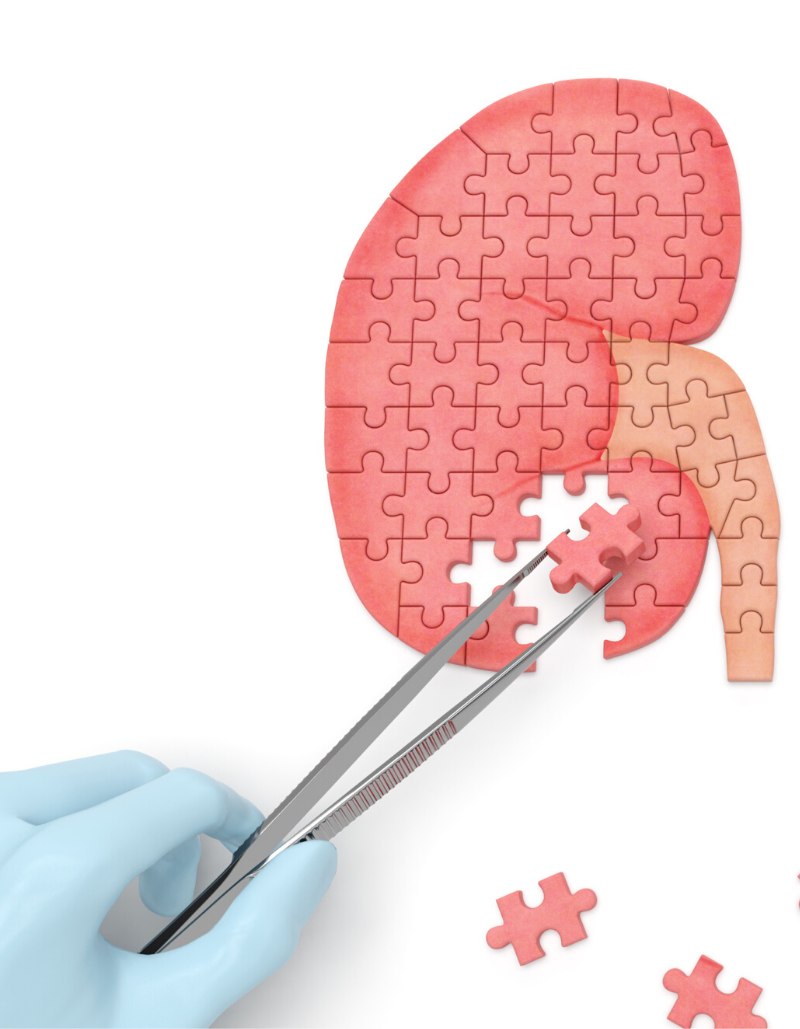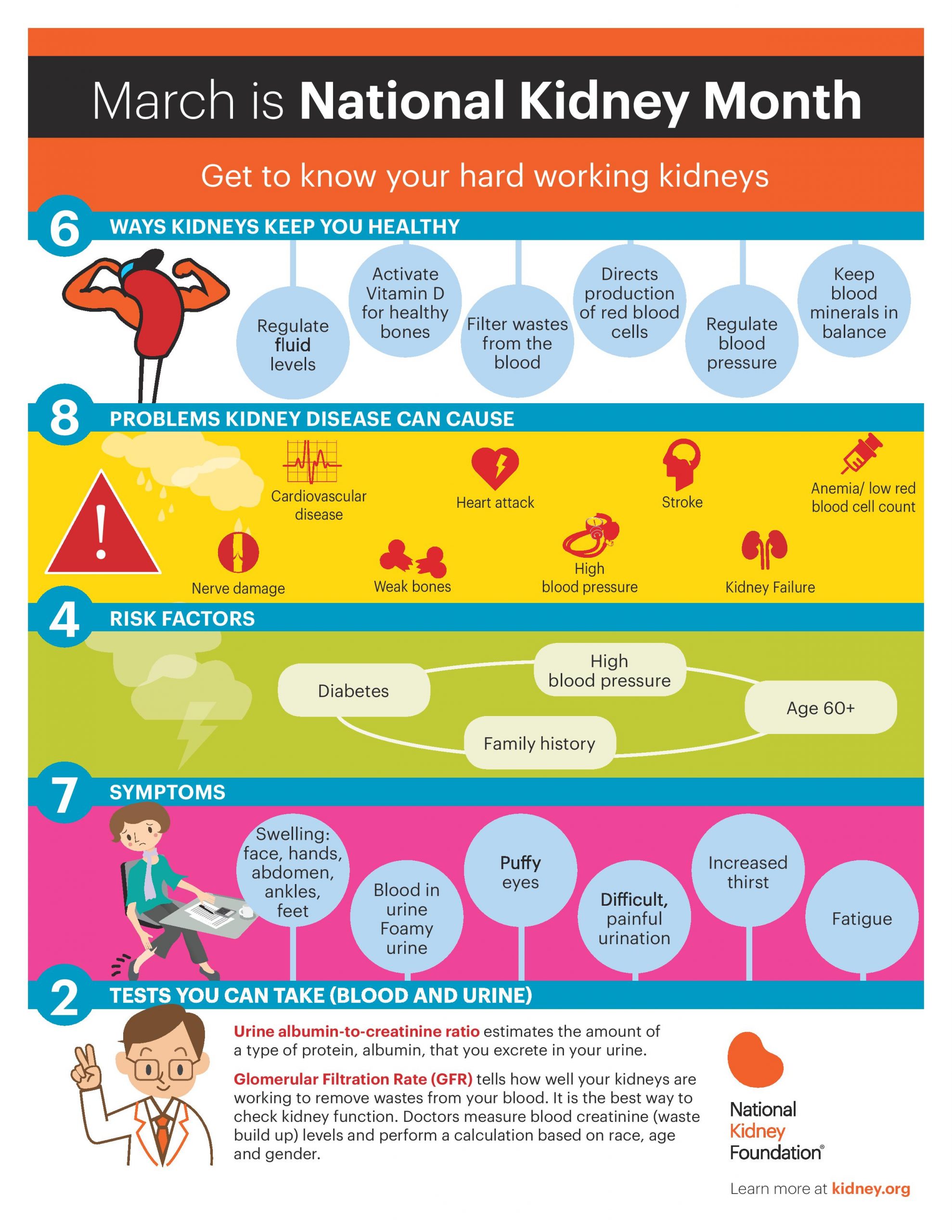March is National Kidney Month
1 in 3 Americans is at risk for Kidney Disease due to diabetes,
high blood pressure, or family history. Over 26 million
Americans already have Kidney disease, and most don’t know it
because there are no symptoms until the disease progresses.

Why Are Your Kidneys Important
Kidneys are an essential organ whose most important job is to remove waste products and excess fluid from the body. Kidneys also produce hormones that dictate the function of other organs, balance the body’s fluids, and help control the production of red blood cells.
The kidneys are powerful chemical factories that perform the following functions:
- remove waste products from the body
- remove drugs from the body
- balance the body’s fluids
- release hormones that regulate blood pressure
- produce an active form of vitamin D that promotes strong, healthy bones
- control the production of red blood cells
Signs of Kidney Disease
While the only way to know for sure if you have kidney disease is to get tested, here are 9 possible signs you may have kidney disease. If you’re at risk for kidney disease due to high blood pressure, diabetes, a family history of kidney failure or if you’re older than age 60, it’s important to get tested annually for kidney disease. List provided by kidney.org
You’re more tired, have less energy or are having trouble concentrating.
A severe decrease in kidney function can lead to a buildup of toxins and impurities in the blood. This can cause people to feel tired, weak and can make it hard to concentrate.
You’re having trouble sleeping.
When the kidneys aren’t filtering properly, toxins stay in the blood rather than leaving the body through the urine. This can make it difficult to sleep. Sleep apnea is more common in those with chronic kidney disease, compared with the general population.
You have dry and itchy skin.
Healthy kidneys do many important jobs. They remove wastes and extra fluid from your body, help make red blood cells, help keep bones strong and work to maintain the right amount of minerals in your blood.
You feel the need to urinate more often.
If you feel the need to urinate more often, especially at night, this can be a sign of kidney disease. When the kidneys filters are damaged, it can cause an increase in the urge to urinate.
You see blood in your urine.
Healthy kidneys typically keep the blood cells in the body when filtering wastes from the blood to create urine, but when the kidney’s filters have been damaged, these blood cells can start to “leak” out into the urine.
Your urine is foamy.
Excessive bubbles in the urine – especially those that require you to flush several times before they go away—indicate protein in the urine. This foam may look like the foam you see when scrambling eggs.
You’re experiencing persistent puffiness around your eyes.
The puffiness around your eyes can be due to the fact that your kidneys are leaking a large amount of protein in the urine, rather than keeping it in the body.
Your ankles and feet are swollen.
Decreased kidney function can lead to sodium retention, causing swelling in your feet and ankles. Swelling in the lower extremities can also be a sign of heart disease or liver disease.
Your muscles are cramping.
lectrolyte imbalances can result from impaired kidney function. For example, low calcium levels and poorly controlled phosphorus may contribute to muscle cramping.
Your Kidneys Are Important!
Take a look at this infographic to see why!
